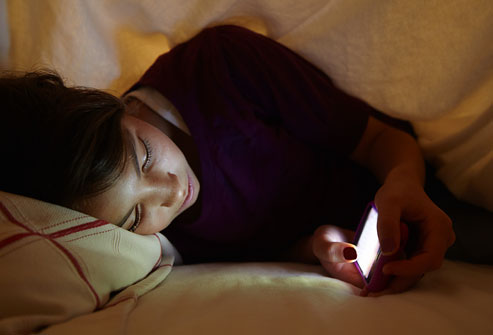
Is Your Smartphone Ruining Your Sleep?
By Michelle DeLaRosa, LCPC
Licensed Clinical Professional Counselor
In a 2014 survey reported in the Sept 5,2014 issue of the Chicago Daily Herald, 68% of teens reported that they sleep with a smartphone, tablet or other device on all night. Research released this week suggests that the use of technology devices like smartphones before bed can interfere with good quality sleep and, worse yet, impact on current and future health. Teens and adults alike use technology throughout the day and often check emails and texts, tweet, post on Facebook, go on snap chat, and upload their latest photos to Instagram. But unfortunately researchers have found to the detriment of their sleep quality. The blue light generated from our devices actually tricks our brains into thinking that it is daytime, not bedtime. This in turn inhibits the production of melatonin, a hormone essential for sleep. However, melatonin is also involved in maintaining a healthy immune system and fighting illness. Too little melatonin from repeat nightly use of smartphones (and even other electronics like TV and computers) has now been shown to affect the ability to recover from illnesses that an individual might face in the future, such as cancer and heart disease. More immediately, this research also suggests a link to irritable and depressed mood in the morning. With teens who are already struggling with depression, this night time ritual is having a negative impact. So teens and adults alike should reconsider use of their devices at bedtime. Especially in our chronically sleep deprived society, this habit can really be preventing us from getting not only adequate quantity of sleep, but also quality. Focus on something else instead fornightly winding down time such as reading, journaling, or chatting and leave the devices to the morning when we want the light emitted from them to wake us up.

 RSS Feed
RSS Feed